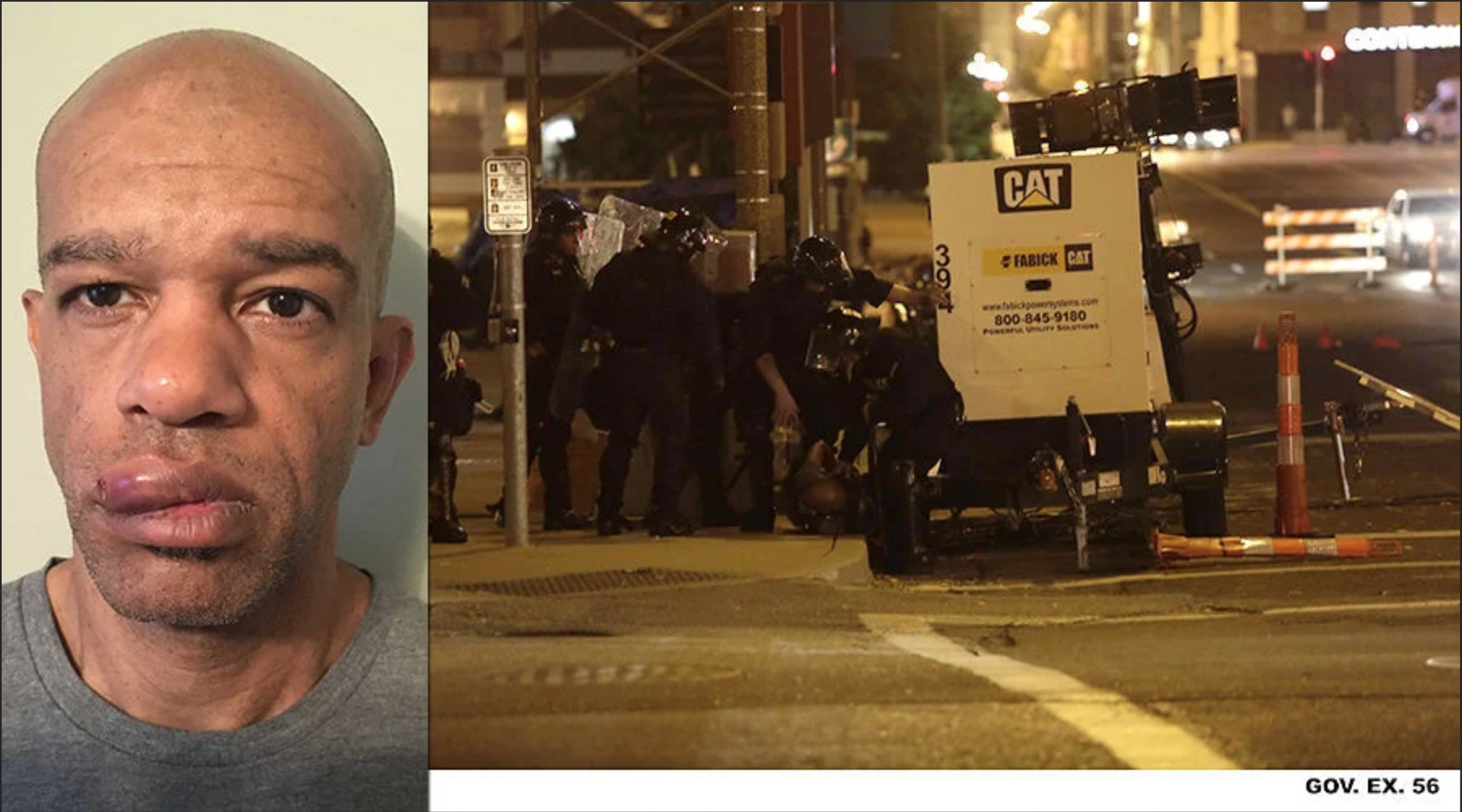Journalists share their unfinished stories in America’s vanishing newsrooms
Storytellers often include scenes in which a detective or family member visits a room filled with work that the missing or deceased abruptly left behind. The last 15 years have been ripe with reports of newspapers disappearing and journalists vacating newsrooms. From 2004 to 2018, almost 1,800 local newspapers closed in the United States, according to a report from the University of North Carolina at Chapel Hill. That means there has been plenty of unfinished work. The problem is, unlike in novels, there aren’t many sleuths visiting the former newsrooms and picking up where the laid-off journalists left off. To try and illustrate that void, I interviewed seven journalists about the stories they suspended but still think about.

——
Bertram de Souza
Former editorial page director and columnist, The Vindicator
Youngstown, Ohio
The newspaper covered Mahoning Valley in northeast Ohio and closed in August 2019 after 150 years because the family that owned the paper had lost money in 20 of the last 22 years and was unable to find a buyer for the newspaper, according to The Business Journal. A West Virginia-based company, Ogden Newspapers, purchased the name following the announcement of the closure and said it would continue to produce a supplemental edition of a nearby newspaper for Vindicator subscribers, but de Souza and two dozen other journalists still lost their jobs.
De Souza had reported on a prominent businessman, Anthony M. Cafaro Sr., who allegedly tried to block county commissioners from buying a former hospital complex, the Oakhill Renaissance Place, because he didn’t want to lose a lease with the state’s Department of Jobs and Family Services.
Three others were convicted in the conspiracy, but assistant prosecutors identified Cafaro as the mastermind. Mike DeWine, then the Ohio attorney general, now the governor, did not bring charges against him.
The Vindicator did not endorse [DeWine] when he ran for governor. He and de Souza “had this constant battle about why he didn’t press charges against a very prominent man who gave to his campaign,” de Souza said. “When the paper closed, that issue was never resolved. I still believe that the governor and his successor as attorney general need to answer publicly as to why Mr. Cafaro was given a pass.”
“The other big issue is the closing of the General Motors assembly facility here in Lordstown and the fact that Donald Trump, seven months after he had been sworn in, came to this valley and told people not to sell their homes, that he was going to increase auto employment in Lordstown and in other parts of the United States and that he was also going to reopen all of the steel mills. None of that has happened. And that’s never going to be taken up; no one is going to continue that assault on Trump.”
———
Yvette C. Hammett
Senior business reporter, Tampa Tribune
Tampa Bay, Florida
The newspaper had printed daily since 1895 but closed in 2016 when its rival, the Tampa Bay Times, purchased the newspaper and immediately closed it because the CEO Paul Tash said in a statement, “The continued competition between the newspapers was threatening to both.”
Hammett was then out of a job. She had reported on the proposed construction of a gas station in a Tampa suburb on a protected wetland conservation area, which stalled over objections from nearby residents.
“Zoning issues were big because it was a high-growth area for much of the time I was working there. That was something that was of huge interest to people and has definitely been lost. All the issues of environmental impact by development and road construction and things that impact people’s everyday lives — they don’t even know what’s going on anymore.
They were going to fill in the wetland and build a gas station and [the dispute] went on for years, and now it’s still a wetland sitting there, with some work done on the property, but they never built anything, so I don’t know what happened there because no one is doing the news.”
I feel like local news has been replaced by these neighborhood Facebook websites, with people posting, ‘What’s going on at 301 and State Road 60?’ because people just don’t know.”
———
Howard Altman
Senior military affairs reporter
Tampa Tribune, Tampa Bay Times
After the Times acquired and closed the Tribune, Altman joined his former rival. The management later moved to split Altman’s time between the military beat and general assignment reporting, so Altman left to become editor of the Military Times, a news organization based in Northern Virginia.
“I tried to explain to the [Times management] that this is a region with 200,000 veterans who want to read this information. You have MacDill Air Force Base, which is home of two of the most important commands in the military. They also have two Air Force wings there. You have two of the busiest [Veterans Affairs] hospitals and one of the busiest V.A. claims processing centers. In the region, it was about a $17 billion economic impact that the military had, and I thought it was rather foolish and unfortunate to have that position cut in half.
“They hired somebody who was a very sharp, very talented reporter but had no experience with the military and being on a half-time beat is a real challenge. I spent hours and hours of my own time meeting people, going to events, showing my face. Every third Thursday of the month they would have this dinner at the V.A. hospital honoring wounded and injured service members, and I was the only reporter there and just got all kinds of great sources.”
———
Julie O’Donoghue
Statehouse bureau chief
The Times-Picayune, Louisiana
The Times-Picayune shifted to printing only three days a week in 2012. To fill a perceived void, The Advocate, a Baton Rouge-based newspaper, started publishing a New Orleans edition the same year, creating competition between the two newspapers. In May 2019, the Advocate owners purchased the Times-Picayune and informed its 161 employees that they would be laid off, though some could be hired back. O’Donoghue was among those let go.
She spent significant time covering the prison system in the state, which has the highest imprisonment rate in the country.
“In Louisiana, over half of their prison guards are women — in men’s prisons. And I was working on a story about the difficulties that creates for the prison system and also maybe why that is happening. And I had gone to a prison called Elayn Hunt in the Baton Rouge area where 75 percent of the prison guards are women, which means they have a really hard time staffing enough people to do pat downs and to watch the men when they are naked. There are certain federal standards [that require] you to have someone of the same gender doing in a prison.”
O’Donoghue was looking into safety concerns related to the gender ratio.
“I was in the middle of that and just kind of had to full-stop. I had had a photographer come with me places and was talking with women who wanted to remain anonymous and was working pretty hard at it.”
To not be able to finish “felt horrible. Some of these people I had interviewed a lot; the wardens basically took an entire day to walk me around the prison. I went to one prison more than once, and a lot of people were going out of their way to help me, and it felt really awful that I didn’t think I could finish up that project before we shut down.”
She has passed along some of her reporting to a former editor who now works at The Marshall Project, a nonprofit news organization that covers the criminal justice system in the United States.
Gabriel San Roman
Staff writer
OC Weekly, alt-weekly in Orange County, California.
The day before Thanksgiving, the publication tweeted, ““Adios Motherf—–!”, after its owner, the Duncan McIntosh Company, shut down the paper after 24 years.
“I had a column that I wrote this year called ‘Alt Disney,’ not Walt Disney but Alt Disney, and basically I could write about anything with that column. I also wrote a little bit about food, culture, music. Police brutality was another beat of mine that I covered extensively and did some big stories on.”
“I definitely had plans to write some really compelling cover stories in 2020. Going back in history, I wanted to profile the first African American police officer in Orange County and tell his history, and that’s something that I will have to take somewhere else.
San Roman also reported on Disneyland employees who say they are not paid a livable wage. A study found that 11 percent of workers who participated in the survey reported being homeless or not having a place of their own to sleep in the previous two years.
“I had to go to a press conference this morning announcing a lawsuit related to the living wage law in Anaheim,” San Roman said in December. “Disneyland workers [filed] a class-action lawsuit against the resort. That’s something that I didn’t get to report because that announcement came days after the closing of the paper, so that’s a story that I’m looking to take elsewhere and definitely wanted to continue telling.”
“One particular story that will probably have to be reported elsewhere is that the Orange County district attorney’s office opened up an investigation into an alleged sex act that was caught on video [in] a Santa Ana patrol car. Whatever that investigation concludes in, whether its charges or not against the officer, for any perceived criminal conduct — that’s something that’s going to be penned by someone else, essentially. We broke that story; we published that video, and it went viral here in terms of having been picked up by local news channels, so that’s a story that remains untold.”
Judy Walgren
Photographer
Dallas Morning News, the Rocky Mountain News, the Denver Post, and the San Francisco Chronicle
All those newspapers have done layoffs over the last decade – though the Chronicle rebounded — and the Mountain News closed in 2009. Its owner, the E.W. Scripps Co., said it had lost $16 million the previous year and been unable to find a buyer. Walgren joined the Denver Post staff.
“We always had major stories in the works. I was organizing a pretty large project around child poverty in Colorado that would have gotten pretty amazing play in the Rocky Mountain News. We would publish a beautiful cover and then 10 to 14 tabloid pages on the inside and then there was always, always a very strong, online component. At the end of the day because of the help from the Denver Post people, we did have a pretty beautiful display online that is actually still there, but in the paper, it ran as a one-page photo page, which was heartbreaking for me because there is this whole segment of the population” that in 2010 got their news primarily in print.
“Taking direction from the Post’s director of photography at the time, Tim Rasmussen, he saw an opportunity to publish the visual work online in a way that we all felt it deserved and so that really forced me to start focusing on digital first rather than looking at as of equal importance. It was painful for me because I came up in the 80s and was used to having these huge broadsheet special sections with incredible stories from all over the world but [the transition] released me from being depressed; it showed me opportunities rather than perseverating on the past.”
————
Phil Andrews,
Managing editor
Guelph Mercury, a daily newspaper that covered the town of 130,000 in southwest Ontario until 2016.
The owners of the paper, Metroland Media Group Ltd., were forced to close the paper because “the decline of classified and national advertising in recent years has made it impossible for the printed copy of this daily newspaper to stay profitable,” its publisher said.
“I was a big believer in always having an active pipeline of freedom of information [FOI] requests, particularly with the municipality…It was a way that newspapers could really serve their markets well.
“Whenever our provincial government or our federal government came in and announced funding for industry in Guelph, it was pretty standard that we would seek an FOI about the terms of the contract and inevitably those always had all sorts of conditions that never came out on the day of the announcement.
The Mercury reported on an auto-part manufacturer, Linamar, that received $100 million from the provincial and federal government as part of a plan to add 1,200 jobs in the city.
“The single biggest employer in Guelph is an auto-parts manufacturer, [Linamar], that has no union, and they also have operations in about seven other countries, but their biggest base of operations is in Guelph. It was always thought that they had the ability to transfer work, particularly to Mexico, away from [Guelph], and they were a pretty good recipient of government support and that was something we watched really carefully, and I think that was one of the ones that we had FOI requests about in the pipeline.
Something that saddened me was I was thinking there was going to be a whole array of responses to access to information requests that the Mercury initiated that were going to go to an address that isn’t a newspaper anymore.”
Eric Berger is an associate editor at the St. Louis Jewish Light and freelance writer whose work has been published in the Riverfront Times, St. Louis Magazine and the Religion News Service, among other news organizations.


